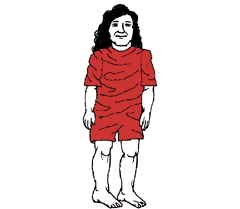
Movies
Volcano (20th Century Fox). The backlash against natural-disaster movies shifts into high gear. Despite Volcano's superior special effects, critics deem it inferior to the last volcano movie, Dante's Peak. Problems: 1) The plot, or the lack thereof. "Without special effects as the main attraction, there would be no movie here at all," writes the New York Times' Janet Maslin. 2) Overacting by stars Tommy Lee Jones and Anne Heche, in lieu of actual roles to play. 3) A volcano that is both implausible and boring. "Volcano is a movie without a villain or a mystery. The volcano has no quirks of personality, because it has no personality. Defeating it is a breeze, because it is dumb, mechanical, and predictable" (David Plotz, Slate. Also see the official Volcano page.)
Romy and Michele's High School Reunion (Buena Vista Pictures). Classic chick flick or a bad Bill & Ted knockoff? The New York Times' Maslin says that Mira Sorvino (Mighty Aphrodite) and Lisa Kudrow (Friends), in their roles as bimbettes avenging the wrongs of high school, "elevat[e] bubble-headedness to new levels of comic ingenuity." The Washington Post's Desson Howe calls the film a "sublime comedy" about "bitchiness [and] oneupwomanship." But Variety's Todd McCarthy says the movie "looks like a peroxided Clueless wannabe straggling along to the party two years after it's over." (Click here for clips.)
Pop
Share My World, by Mary J. Blige (MCA). A makeover for "the queen of hip-hop soul": from gangsta girl to pop diva crooning Natalie Cole covers. "Mary J. Blige has been to charm school," says Newsweek's Allison Samuels. It works. "Blige deserves a place among pop's premiere female vocalists," writes Christopher John Farley in Time. (You can hear clips from Blige's latest album at MCA's site.)
Books
Locked in the Cabinet, by Robert Reich (Knopf). Whatever their ideological stripe, critics agree that the former labor secretary's self-deprecating style (he makes a lot of jokes about being short) masks a massive ego (he thinks he has all the answers). The Weekly Standard's Andrew Ferguson says, "Reich leaves the 'nuts and bolts' of politics a supremely unhappy man, convinced as strongly as ever of his superiority to its processes, its practitioners, and to the man who gave him the coolest job he'll ever have." However, reviewers do praise Reich's lucid prose, pointed observations, and sense of humor: "There is a Thurberesque side to him" (Evan Thomas, the New York Times Book Review). (See Herbert Stein's review in Slate. Random House plugs the book here.)
Anything Your Little Heart Desires: An American Family Story, by Patricia Bosworth (Simon & Schuster). Not all memoirs are evil. Critical approbation for this one about Bosworth's father, Bartley Crum, a corporate lawyer who represented William Randolph Hearst and the "Hollywood 10" and committed suicide during the McCarthy era. Bosworth, the biographer of Diane Arbus and Montgomery Clift, "provides a vivid sense of upper-middle-class life in the early Cold War years, when prominent citizens suddenly turned their backs on colleagues such as Crum and called them Communist dupes," writes Kathy Deacon in the Village Voice. In the New York Times Book Review, Richard Lingeman says Bosworth "tells her elegiac story in a tone that is admirably restrained, in prose that conveys strong feeling by understatement."
Hystories: Hysterical Epidemics and Modern Media, by Elaine Showalter (Columbia University Press). The feminist literary critic's claim that the Gulf War and chronic-fatigue syndromes are merely psychological maladies meets with predictably high levels of vitriol. In the New York Times Book Review, social-psychologist Carol Tavris takes Showalter to task for using literary Freudianism to explain real problems: "Sometimes a headache is a 'language of distress' and sometimes it's a tumor." Also, Tavris says recent revelations that Gulf War troops may indeed have been exposed to chemical weapons belie Showalter's case. In the New Republic, the anti-Freudian Frederick Crews describes Showalter's theory of hysteria as itself an "attempt to whip up a little hysteria." (Columbia University Press plugs the book.)
Theater
Titanic (Lunt-Fontanne Theatre, New York City). Surprisingly, the $10 million spectacular isn't Broadway's all-time biggest flop. But "that is probably the most exciting thing that can be said about it," says the New York Times' Ben Brantley. Critics complain that the musical fails to deliver the extravagant sets and staging they've come to expect from theatrical blockbusters. By sidestepping obvious clichés (rushing crowds, crashing waves) in an effort "to make a sensitive and tasteful show about a trashy subject," says Newsday's Linda Winer, the production achieves only "banality."
The Little Foxes (Vivian Beaumont Theater, Lincoln Center, New York City). Apparently, not even the sure-fire plot machinations of Lillian Hellman and beguiling wiles of actress Stockard Channing can rescue this Lincoln Center production from its pretensions. The play "is so wildly miscast and so haplessly misconceived that it is hard to figure out what its creators exactly had in mind," says the New York Times' Brantley. (His best guess: a Freudian essay on lovelessness and neurosis.) The Washington Post's Lloyd Rose calls the production "a preachy bore."

Dance
"In Honor of the Divine Lou Harrison," the Mark Morris Dance Group (Brooklyn Academy of Music, New York City). The bad boy of modern dance takes on Lou Harrison, the eclectic classical composer. "As you watch the stage, your brain seems to get bigger, your life more interesting," says the Wall Street Journal's Joan Acocella. The main attraction: a live orchestra (Yo-Yo Ma played opening night). Also, Morris' much-praised penchant for dancers with unusually shaped bodies. "It is unique among the major companies of its kind in looking utterly human, like a cross-section of real people who just happen to move vividly or be capable of generating a potent atmosphere" (Tobi Tobias, New York).
Update
More Mailer bashing: In the Washington Post, Steven Moore says that Norman Mailer's retelling of Jesus' life reads "like a simplified novelization [of the gospels] for grade-school children." In the New Republic, James Wood says, "Each new book by him is worse than the last; he has become a bibliographer's definition of nostalgia. He remembers that one must be daring as an artist, but has forgotten to what end."
Recent "Summary Judgment" columns:
Book--The Gospel According to the Son, by Norman Mailer;
Book--American Pastoral, by Philip Roth;
Book--W.B. Yeats: A Life. 1: The Apprentice Mage, 1865-1914, by R.F. Foster;
Book--Purple America, by Rick Moody;
Television--In the Gloaming;
Opera--The Ring of the Nibelung;
Movie--Murder at 1600;
Movie--Kissed.
Art--"Picasso: The Early Years, 1892-1906" (National Gallery of Art, Washington, D.C.);
Movie--Anaconda;
Movie--Grosse Pointe Blank;
Theater--An American Daughter;
Book--Naked, by David Sedaris;
Book--The Blue Flower, by Penelope Fitzgerald;
Book--Gut Symmetries, by Jeanette Winterson;
Book--Inventions of the March Hare: Poems 1909-1917, by T.S. Eliot, edited by Christopher Ricks.
Theater--A Doll's House;
Movie--The Saint;
Movie--Paradise Road;
Movie--Inventing the Abbotts;
Movie--That Old Feeling;
Book--Allen Ginsberg (1926-1997);
Book--After the Madness: A Judge's Own Prison Memoir, by Sol Wachtler;
Book--The Big Picture, by Douglas Kennedy.
Book--Texaco, by Patrick Chamoiseau, translated by Rose-Myriam Réjouis and Val Vinokurov;
Book--John Wayne's America: The Politics of Celebrity, by Garry Wills;
Book--The Divorce Culture, by Barbara Dafoe Whitehead;
Book--When the Sons of Heaven Meet the Daughters of the Earth, by Fernanda Eberstadt;
Movie--The Devil's Own;
Movie--Chasing Amy;
Theater--The Young Man From Atlanta.
--Compiled by Franklin Foer and the editors of Slate.
